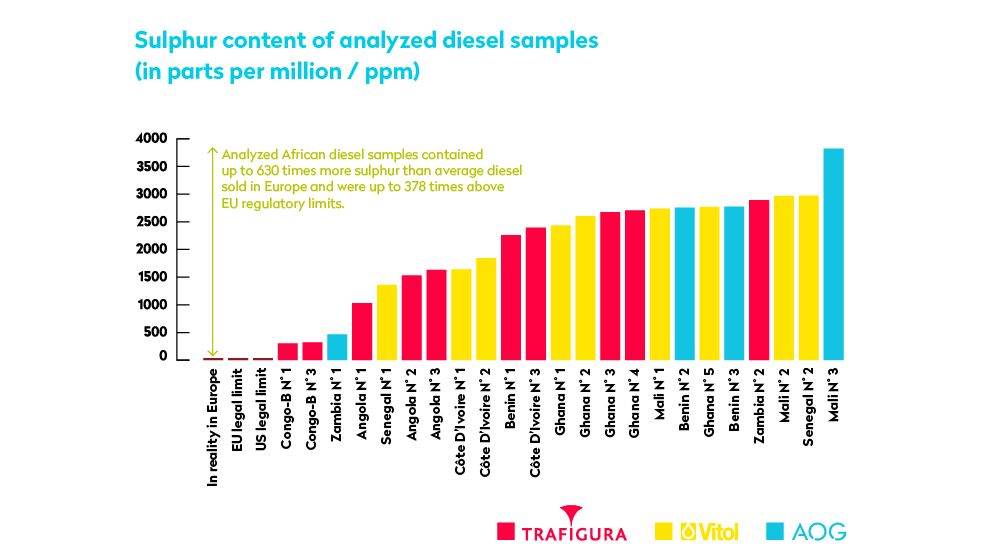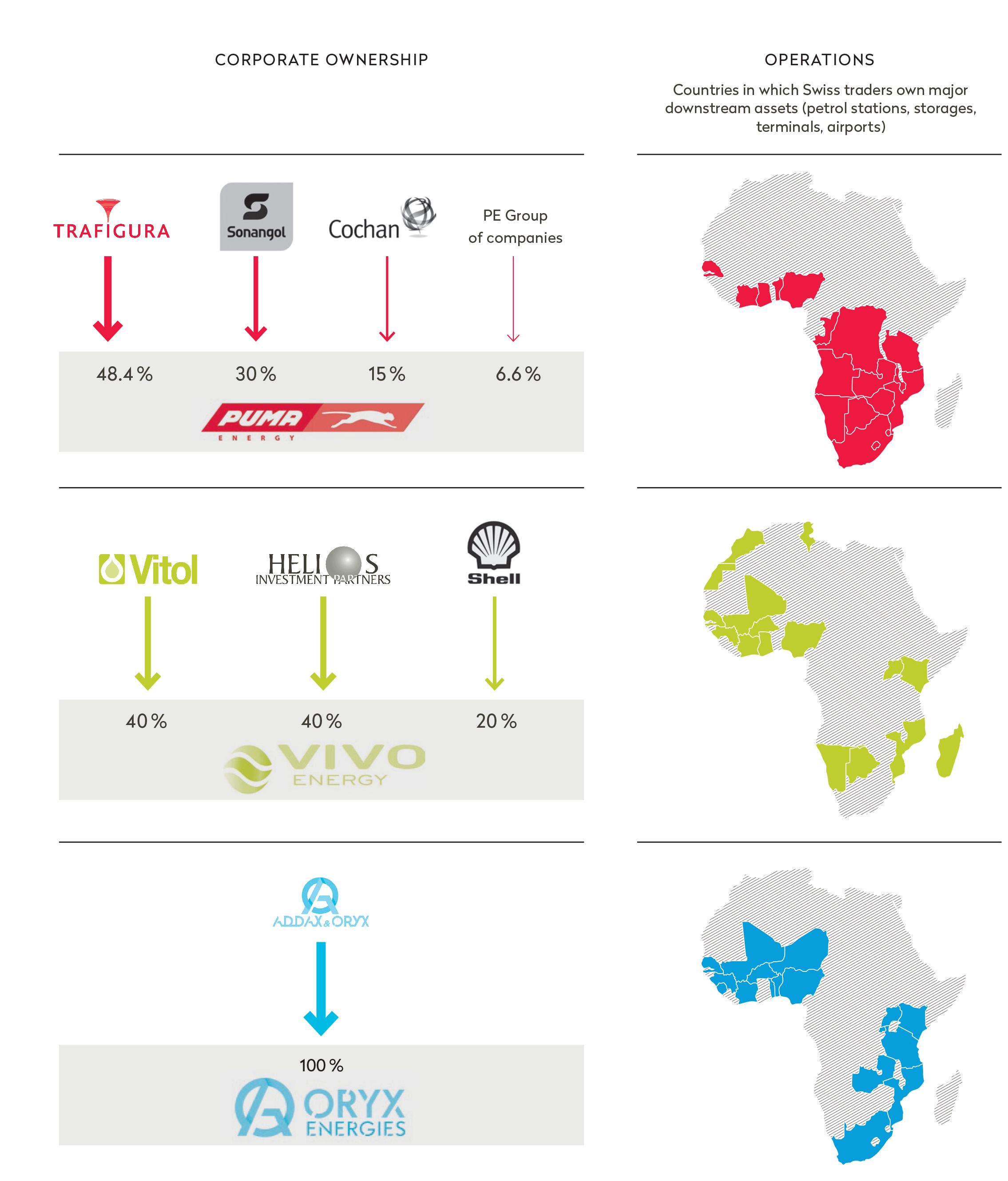Dirty Diesel: Dirty business with toxic fuels
 ©
Fabian Biasio
©
Fabian Biasio
After three years of research, Public Eye sheds light on a global business model previously only known to insiders. Our study Dirty Diesel reveals for the first time how commodity trading companies systematically exploit the lax African standards to optimise their profit margins with toxic fuels – at the expense of the health of millions of Africans. They exploit countries’ weak standards, producing and supplying fuels whose sale would never be permitted in Switzerland. In doing so, they become partly responsible for the premature deaths of thousands of people. Though technically legal, their schemes are illegitimate.
Air pollution in Africa – a ticking time bomb
Air pollution is a serious problem in African cities. Respiratory diseases are one of the main causes of hospitalisation of people in Accra or Lagos. Vehicules exhausts are largely responsible for the harmful particulate matter in the air. Although there are fewer cars on the roads in Africa than in Europe, polluting emissions are higher because the fuels they consume contain a much higher level of sulphur. When burnt, they release very large quantities of particulate matter.
 ©
Carl De Keyzer/Magnum
©
Carl De Keyzer/Magnum
Sulphur content nearly 400 times higher than levels permitted in Europe
Fuel standards in most of Africa are far lower than in Europe. Public Eye investigated the true sulphur content of diesel sold in eight countries. And the results were baffling: the sulphur content was up to 378 times higher than levels permitted in Europe. We also found other substances that are harmful to human health at levels which are banned in Europe – for instance benzene or polycyclic aromatic hydrocarbons.
 ©
Public Eye
©
Public Eye
Swiss commodities traders lead the dirty diesel business
In 2016, we revealed that Swiss commodities trading companies were leading the dirty business of toxic fuel in Africa. Vitol, Trafigura and the Addax and Oryx Group own or control networks of petrol stations or in these networks. Glencore, Mercuria, Gunvor and Litasco are active in the wholesale trade. These companies do not just supply the fuel, they also produce the toxic blend themselves. Given that they systematically take advantage of weak African standards to optimise their profit margins with toxic fuel, these companies have no interest in strengthening them.
 ©
Public Eye
©
Public Eye

